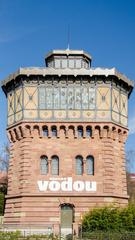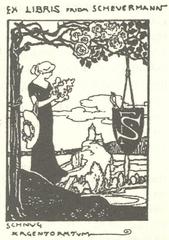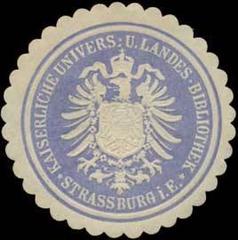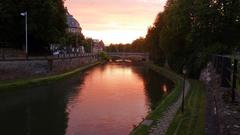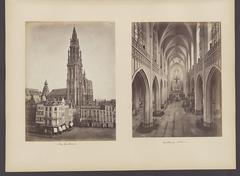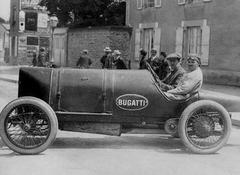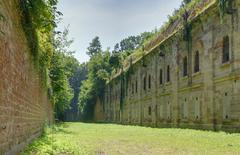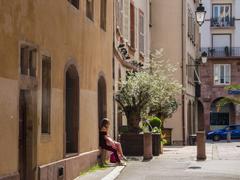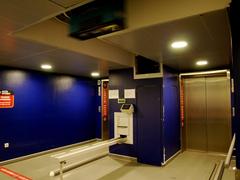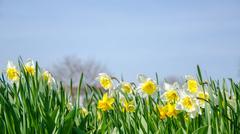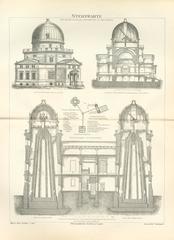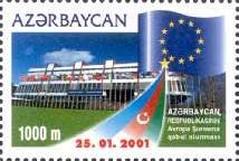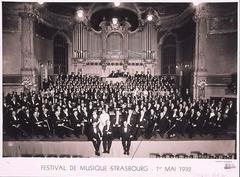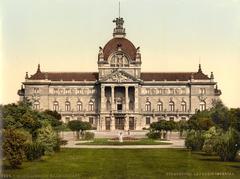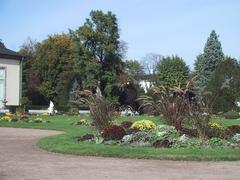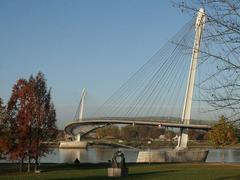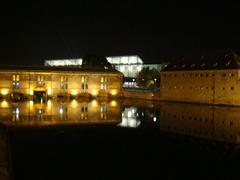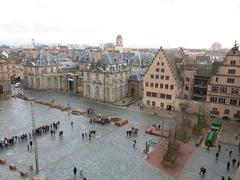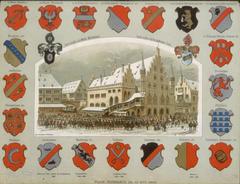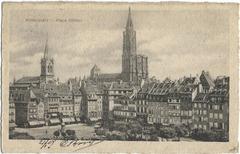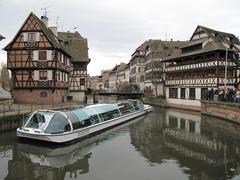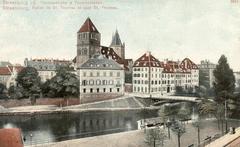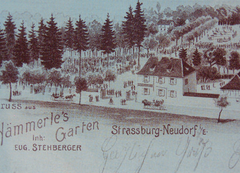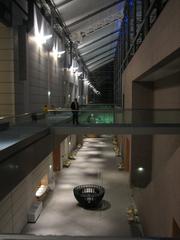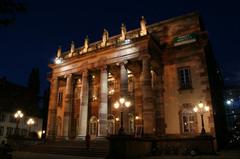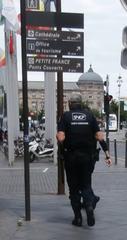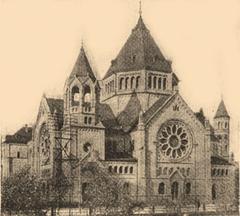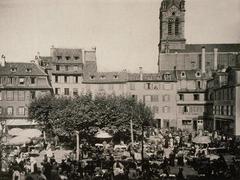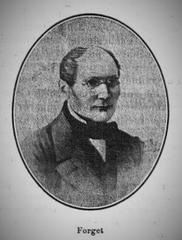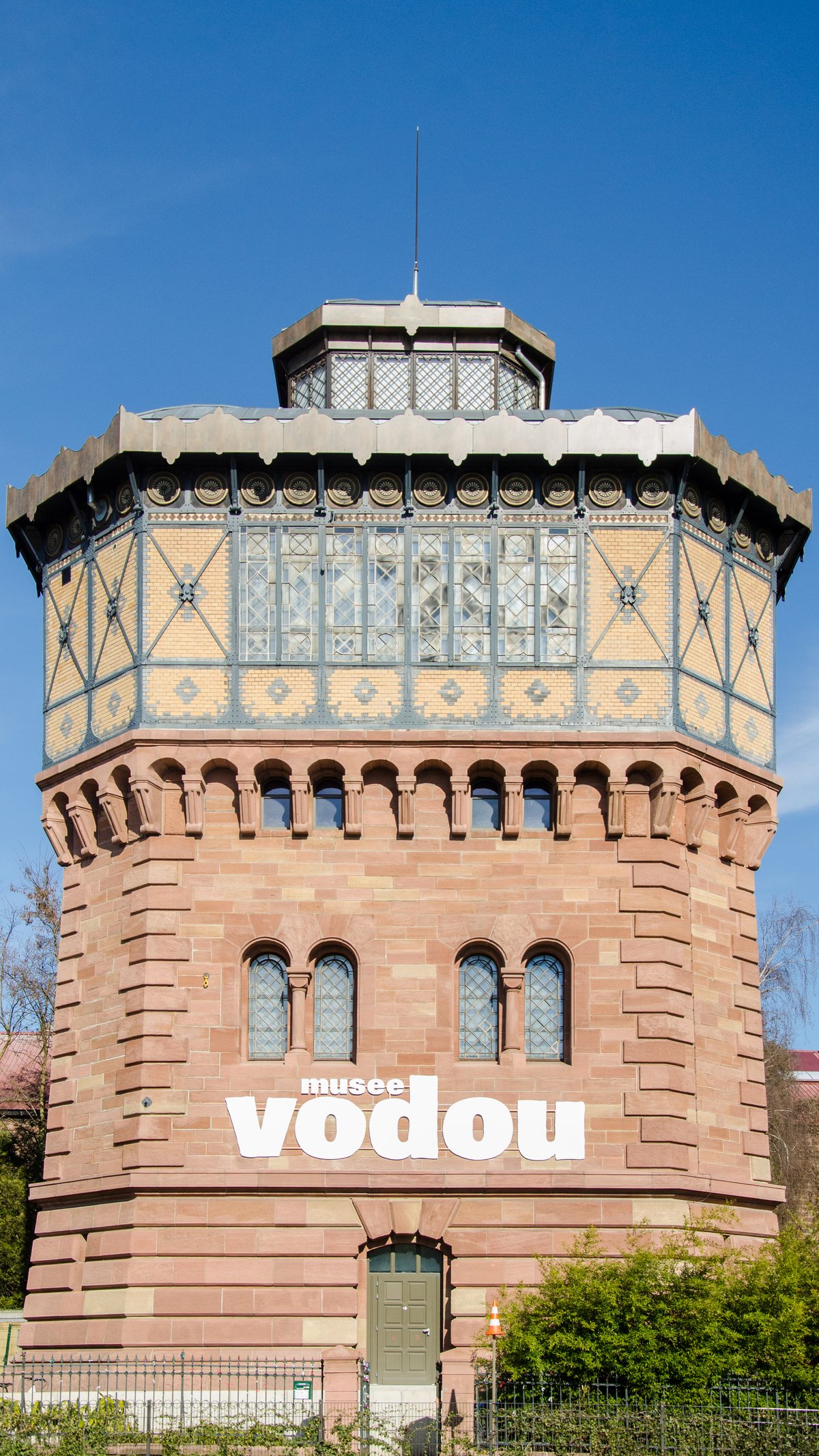
Comprehensive Guide to Visiting Château Musée Vodou, Strasbourg, France
Date: 23/07/2024
Introduction
Nestled in the vibrant city of Strasbourg, France, the Château Musée Vodou offers an unparalleled journey into the rich and intricately spiritual world of Vodou culture. Housed within a historic 19th-century water tower, the museum not only presents a striking architectural landmark but also hosts one of the largest collections of Vodou artifacts outside of Africa. The museum’s inception is credited to Marc Arbogast, a French entrepreneur whose extensive travels in West Africa led him to amass a significant collection of Vodou objects, aiming to preserve and share their cultural and historical value. The Château Musée Vodou stands as a beacon of cultural understanding and exchange, providing visitors with a unique opportunity to explore the depth and diversity of Vodou practices, from ritual masks and statues to ceremonial costumes and tools. By showcasing authentic artifacts and offering detailed explanations of their cultural contexts, the museum dispels common misconceptions, fostering a deeper appreciation and respect for this often misunderstood religion. Whether you’re a history enthusiast, a cultural aficionado, or just curious about different spiritual practices around the world, a visit to the Château Musée Vodou promises to be an enlightening experience.
Table of Contents
- Introduction
- Origins and Early History
- Transformation into a Museum
- The Vodou Collection
- Cultural Significance
- Visitor Information
- Special Events and Exhibitions
- Preservation and Research
- Challenges and Future Directions
- Conclusion
- FAQ
Origins and Early History
The Château Musée Vodou, located in Strasbourg, France, is housed in a historic water tower dating back to 1878. This tower was originally constructed as part of the city’s water supply system, designed by the German architect Johann Eduard Jacobsthal. The structure served its original purpose until the mid-20th century, after which it fell into disuse. The building’s robust architecture and unique design made it a landmark in Strasbourg, even before its transformation into a museum.
Transformation into a Museum
The transformation of the water tower into the Château Musée Vodou began in the early 21st century. The project was spearheaded by Marc Arbogast, a passionate collector of Vodou artifacts. Arbogast’s interest in Vodou began during his travels in West Africa, where he amassed a significant collection of objects related to the Vodou religion. Recognizing the cultural and historical value of these artifacts, he sought to create a museum that would both preserve and showcase them.
The renovation of the water tower was a complex process, involving extensive structural modifications to accommodate the museum’s needs. The project was completed in 2014, and the Château Musée Vodou officially opened its doors to the public in November of that year. The museum’s unique setting, combined with its extensive collection, quickly made it a popular destination for both locals and tourists.
The Vodou Collection
The Château Musée Vodou houses one of the largest collections of Vodou artifacts outside of Africa. The collection includes over 1,000 objects, ranging from ritual masks and statues to ceremonial costumes and tools. These artifacts originate primarily from West Africa, particularly from countries such as Benin, Togo, and Ghana, where Vodou is widely practiced.
One of the most notable aspects of the collection is its diversity. The artifacts represent various aspects of the Vodou religion, including its rituals, deities, and cultural practices. For example, the museum features a wide array of “fetishes” or sacred objects believed to possess spiritual power. These objects are often used in rituals to invoke the presence of Vodou spirits or to seek their protection and guidance.
Cultural Significance
The Château Musée Vodou plays a crucial role in preserving and promoting the understanding of Vodou culture. Vodou, often misunderstood and misrepresented in popular media, is a complex and deeply spiritual religion with a rich history. By showcasing authentic artifacts and providing detailed information about their cultural context, the museum helps to dispel myths and misconceptions about Vodou.
The museum also serves as a bridge between cultures. It provides visitors with an opportunity to learn about the beliefs and practices of Vodou, fostering greater appreciation and respect for this African religion. In doing so, the Château Musée Vodou contributes to the broader goal of cultural exchange and understanding.
Visitor Information
- Opening Hours: The Château Musée Vodou is open from Tuesday to Sunday, 10:00 AM to 6:00 PM. It is closed on Mondays and public holidays.
- Tickets: General admission tickets are priced at €10 for adults, €7 for students and seniors, and free for children under 12. Group discounts and guided tour packages are also available.
- Accessibility: The museum is fully accessible to visitors with disabilities. Elevators and ramps are available throughout the building.
- Travel Tips: The museum is located at 4 Rue de Koenigshoffen, Strasbourg. It is easily accessible via public transport, with several bus and tram lines stopping nearby. Parking facilities are also available for those traveling by car.
Special Events and Exhibitions
In addition to its permanent collection, the Château Musée Vodou hosts a variety of temporary exhibitions and educational programs. These initiatives are designed to engage visitors and deepen their understanding of Vodou culture. For example, the museum frequently collaborates with scholars and practitioners of Vodou to offer lectures, workshops, and guided tours.
One notable exhibition was “Vodou - Art and Mysticism,” which explored the artistic and spiritual dimensions of Vodou. The exhibition featured a selection of rare artifacts, including intricately carved statues and elaborately decorated ceremonial costumes. Through these objects, visitors gained insight into the aesthetic and symbolic aspects of Vodou rituals.
Preservation and Research
The Château Musée Vodou is not only a museum but also a center for research and preservation. The museum’s staff includes experts in African art and culture, who work to document and study the artifacts in the collection. This research is essential for understanding the historical and cultural context of the objects, as well as for preserving them for future generations.
The museum also collaborates with institutions and researchers around the world. These partnerships facilitate the exchange of knowledge and resources, enhancing the museum’s ability to care for its collection and to contribute to the global understanding of Vodou culture. For example, the museum has worked with the Musée du Quai Branly in Paris, which also has a significant collection of African art.
Challenges and Future Directions
Despite its successes, the Château Musée Vodou faces several challenges. One of the primary challenges is the ongoing need for funding to support its operations and programs. As a private museum, it relies heavily on donations and grants. Ensuring the long-term sustainability of the museum is a key priority for its management.
Looking to the future, the museum aims to expand its collection and to continue developing its educational and cultural programs. Plans are also underway to enhance the museum’s digital presence, making its resources more accessible to a global audience. This includes the development of virtual tours and online exhibitions, which will allow people from around the world to explore the museum’s collection and learn about Vodou culture.
Conclusion
In conclusion, the Château Musée Vodou is more than just a museum; it is a cultural bridge that fosters understanding and appreciation of Vodou. From its rich history and diverse collection to its engaging educational programs, the museum offers a wealth of knowledge and insights. Whether you’re a history buff, a cultural enthusiast, or simply curious, a visit to the Château Musée Vodou promises to be an enlightening experience. For those looking to further immerse themselves in the history and practices of Vodou, the museum’s future plans to expand its digital presence and educational programs promise even more opportunities for learning and engagement. Don’t forget to check their official website for the latest updates on exhibitions and events, and consider downloading the Audiala app for a more interactive experience.
FAQ
Q: What are the visiting hours for the Château Musée Vodou?
A: The museum is open from Tuesday to Sunday, 10:00 AM to 6:00 PM, and is closed on Mondays and public holidays.
Q: How much do tickets cost for the Château Musée Vodou?
A: General admission tickets are €10 for adults, €7 for students and seniors, and free for children under 12. Group discounts and guided tour packages are also available.
Q: Where is the Château Musée Vodou located?
A: The museum is located at 4 Rue de Koenigshoffen, Strasbourg, and is easily accessible via public transport.
Q: Are there any special events or exhibitions at the Château Musée Vodou?
A: Yes, the museum hosts a variety of temporary exhibitions and educational programs. Check the museum’s official website for the latest information on upcoming events.
Q: Is the Château Musée Vodou accessible to visitors with disabilities?
A: Yes, the museum is fully accessible, with elevators and ramps available throughout the building.
References
- Exploring Château Musée Vodou - History, Visiting Hours, Tickets, and More, 2024, source url
- Explore the Château Musée Vodou in Strasbourg - Visiting Hours, Tickets, and Cultural Significance, 2024, source url
- Visiting Château Musée Vodou - Hours, Tickets, and Cultural Significance in Strasbourg, 2024, source url
